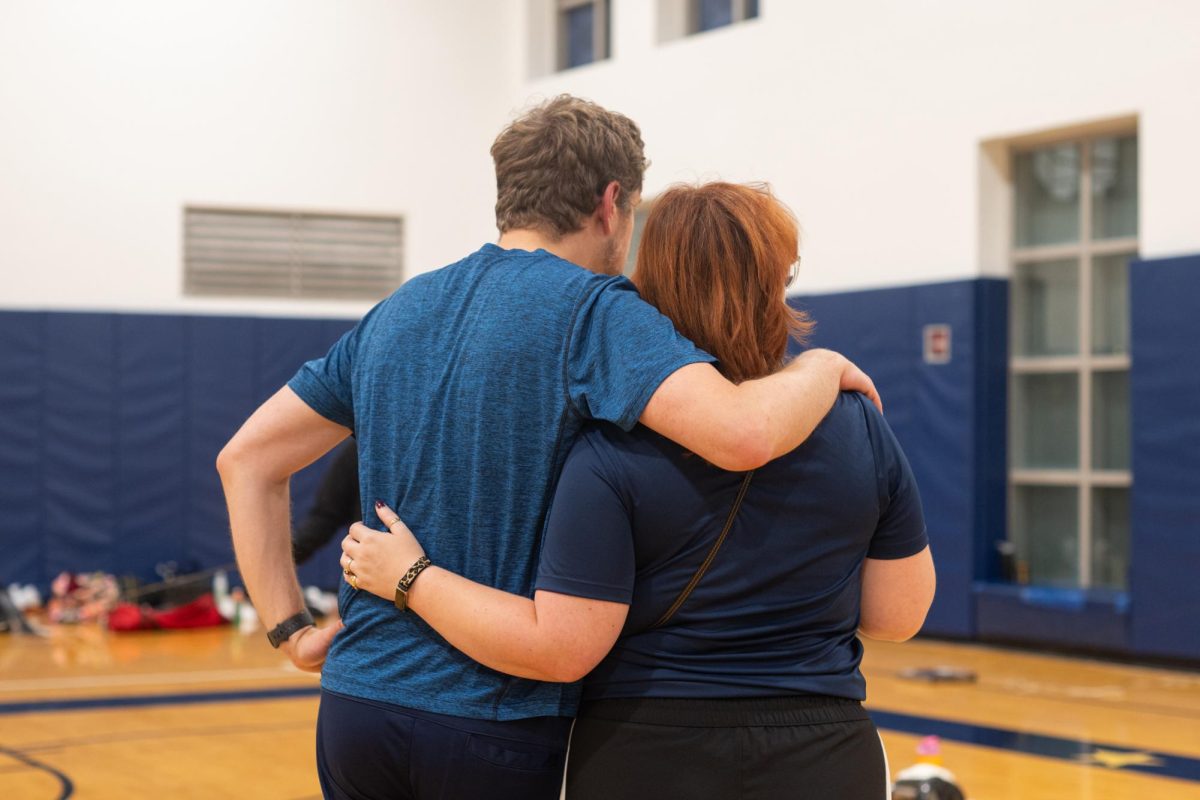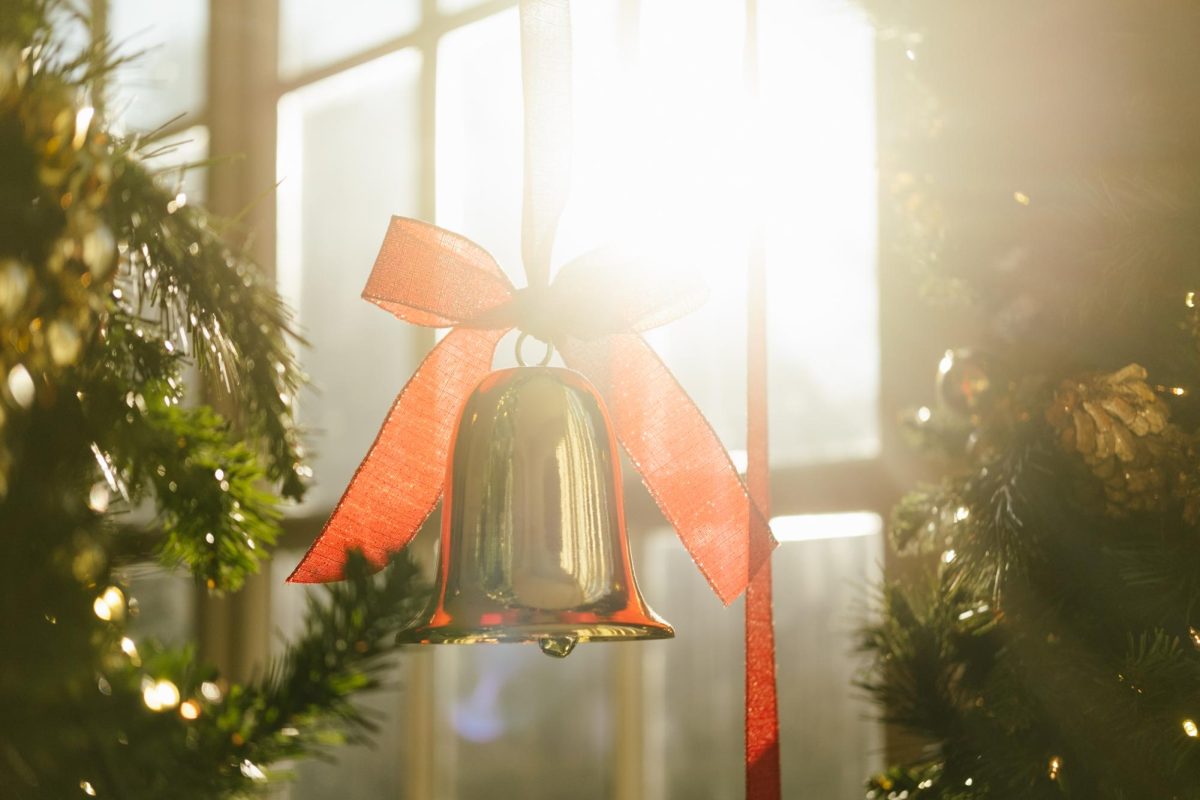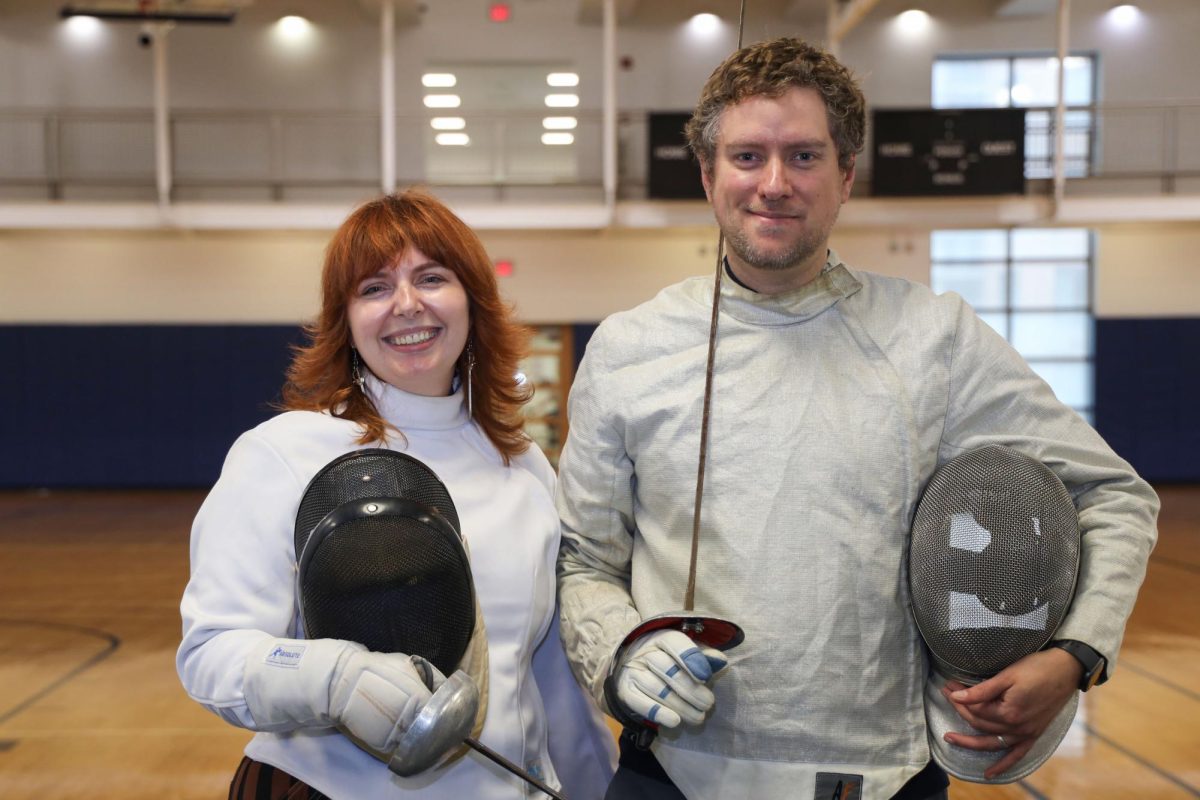
Sixteen years ago in a supply closet on the third floor of the Lerner Health and Wellness Center, two GW fencers had their first kiss.
It’s a story murmured among members of the GW Fencing Club who have heard the tale about the fencers’ 2008 meet-cute — because those fencers, Hunter Higgison and Joanna Klatzman, are now the married co-coaches of GW’s club fencing team. Klatzman said the fencing team now resembles a family that continues to grow after over a decade of the pair serving as the backbone of the program, once as players and now as coaches.
“It’s been wonderful seeing this team evolve from such a small group to this really big community where they stay connected after school too,” Klatzman said.
In 2008, Higgison was a junior at GW when he joined the team and met Klatzman, who was a sophomore. He said despite the age difference, she was a more experienced fencer than him and served as the captain of GW’s épée team, a methodical fencing style where fencers can target the entire body compared to other styles, which only target the waist up or chest.
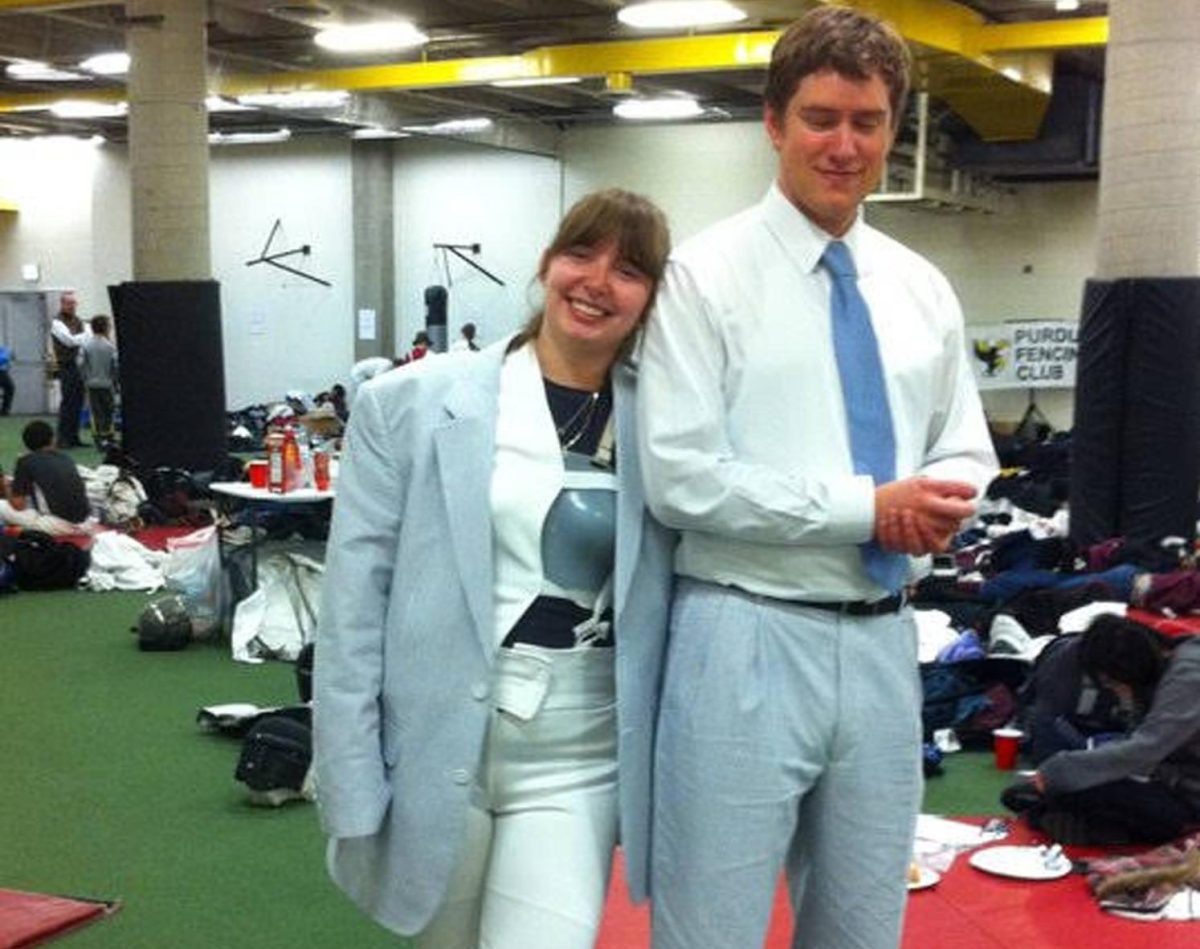
Klatzman said Higgison’s height — a benefit when fencing in épée style because of one’s longer wingspan — and good looks caught her eye, and she immediately tried to get him to join the épée team.
“I was the captain of the épée squad, and he’s very tall, which is definitely an advantage in épée, and he’s cute,” she said. “So I pretty much told him, if he joined the épée squad, I would cook him a homemade meal, not realizing at the time that he’s honestly probably a better cook than I am, but it was a solid bribe method at the time.”
Klatzman said she remembers the “bucket of pasta” brimming with three boxes of noodles she made for Higgison during that first dinner. She said their first official date quickly followed the pasta night: a Target run to buy a toolbox for the fencing team.
They were a couple within two weeks, Klatzman said.
“We knew really fast,” Klatzman said. “I remember just one morning we were both reading a magazine together. I think it was ‘The Week,’ quietly reading at 8 in the morning, and I was like ‘This is so natural feeling,’ and I didn’t feel like I had to worry about anything. I could just exist.”
Klatzman said fencing defined their relationship to the point that her contact information on Higgison’s phone was inspired by the sport.
“I was ‘Jo Fencing’ in his phone until we got married or until he got a new phone, which I’m pretty sure was seven years,” she said.
Higgison said, with a laugh, that he didn’t change her contact on his phone all those years “on principle.”
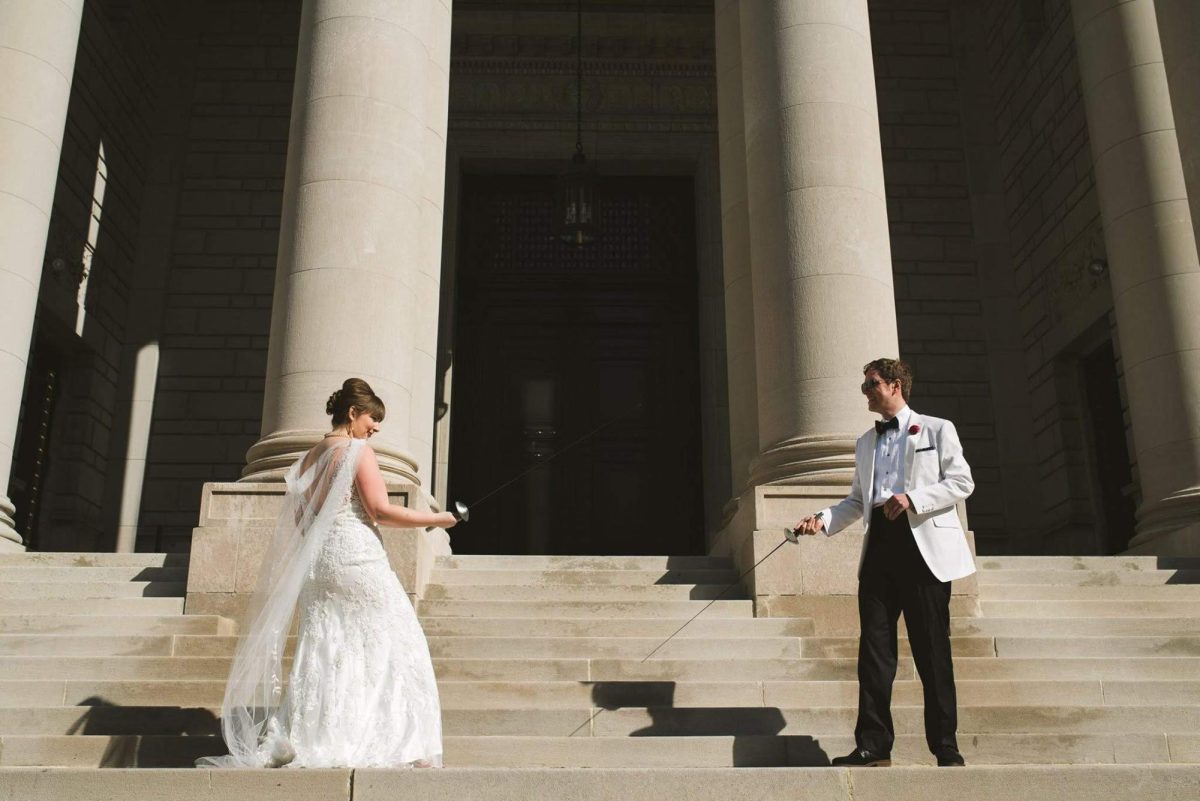
He said their arguments are also fencing related, recalling that their biggest fight was over a “parry eight,” a technique in fencing. Higgison said he was convinced the term referred to someone parrying an eight — where the numbers refer to hand positions, with an eight being an outside position and a six being an outside upper position — while Klatzman said it was a six being pushed out into an eight.
Higgison said they settled the spat when they acknowledged he had learned the French system of fencing while she learned the Eastern European system, which each have their own definitions of a “parry eight.”
“We still don’t agree on what a parry eight is,” he said.
Despite the tiff, Klatzman said fencing attracts similar types of people and “fencing personalities” — people who are a blend of analytic and strategic.
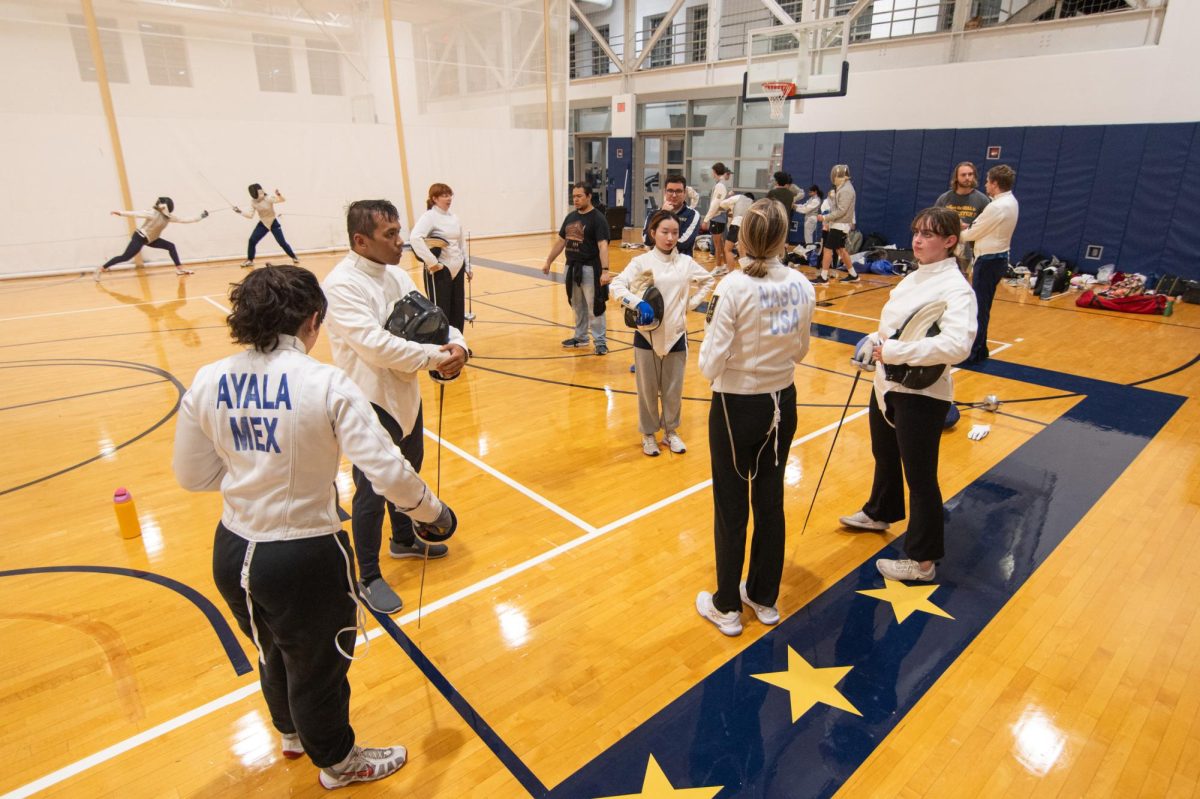
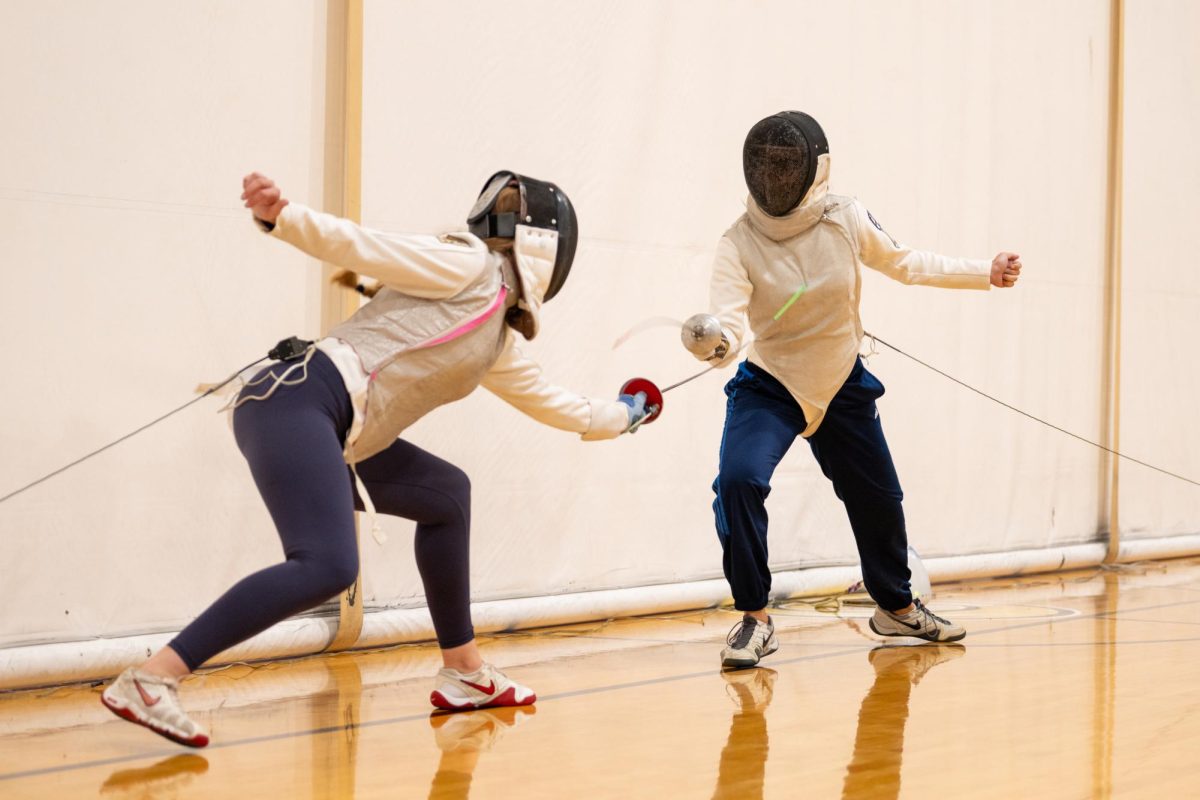
“It’s this really cool environment of a lot of independence but also a natural inclination for camaraderie and community,” she said. “And it’s a nice balance.”
She said the couple’s time together at their Springfield, Virginia, home isn’t all fencing, all the time. She said Higgison is a history buff that belongs to a discussion group focused on World War II and the Cold War, while she runs a wedding planning business on the side. She also works in brand marketing for AARP, while Higgison works at a real estate financing group.
But Klatzman said sharing a passion for fencing over the past 16 years has kept them focused on the same goal: coaching the GW fencing team. Higgison said he became a coach immediately after graduating from GW in 2010 because Klatzman, a then-senior, was still the group’s president.
Klatzman said she joined him as a coach a year later, and they have led the team ever since. Their bond as a couple helps them as fencing coaches, each serving as a sounding board for the other and bringing different skill sets and coaching styles to practices, she said.
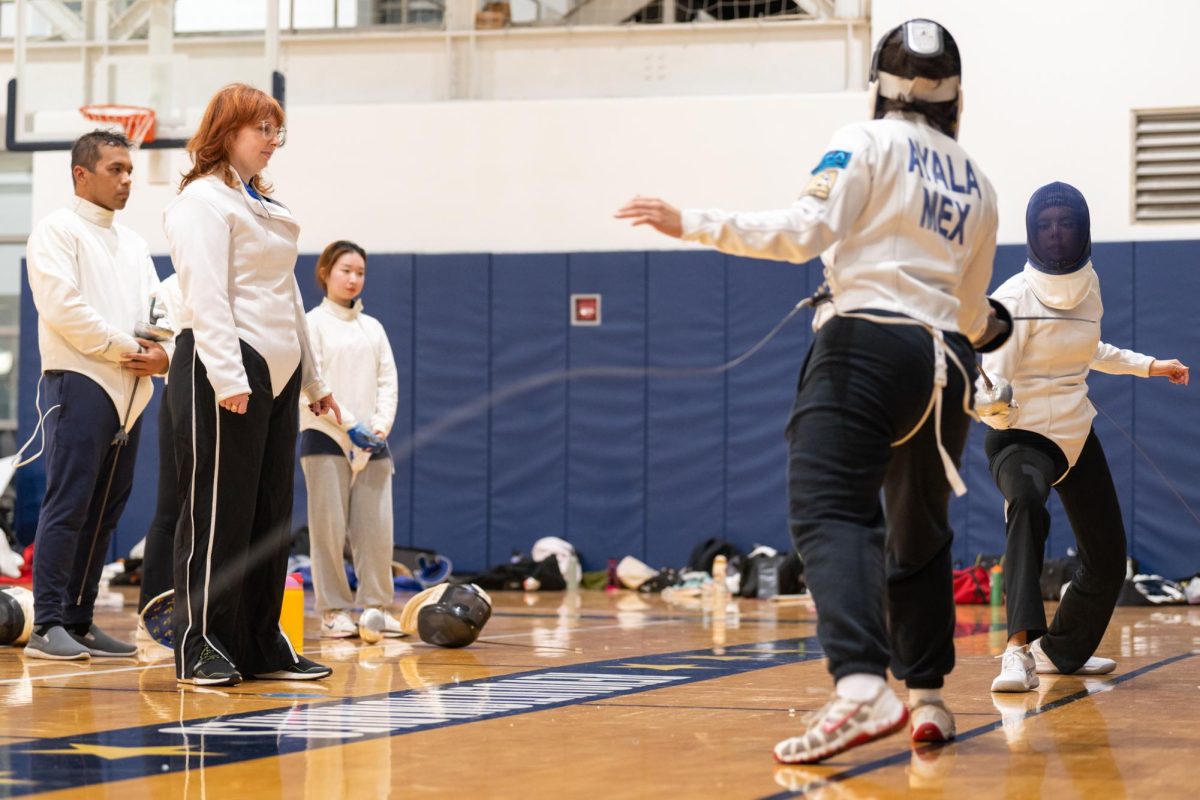
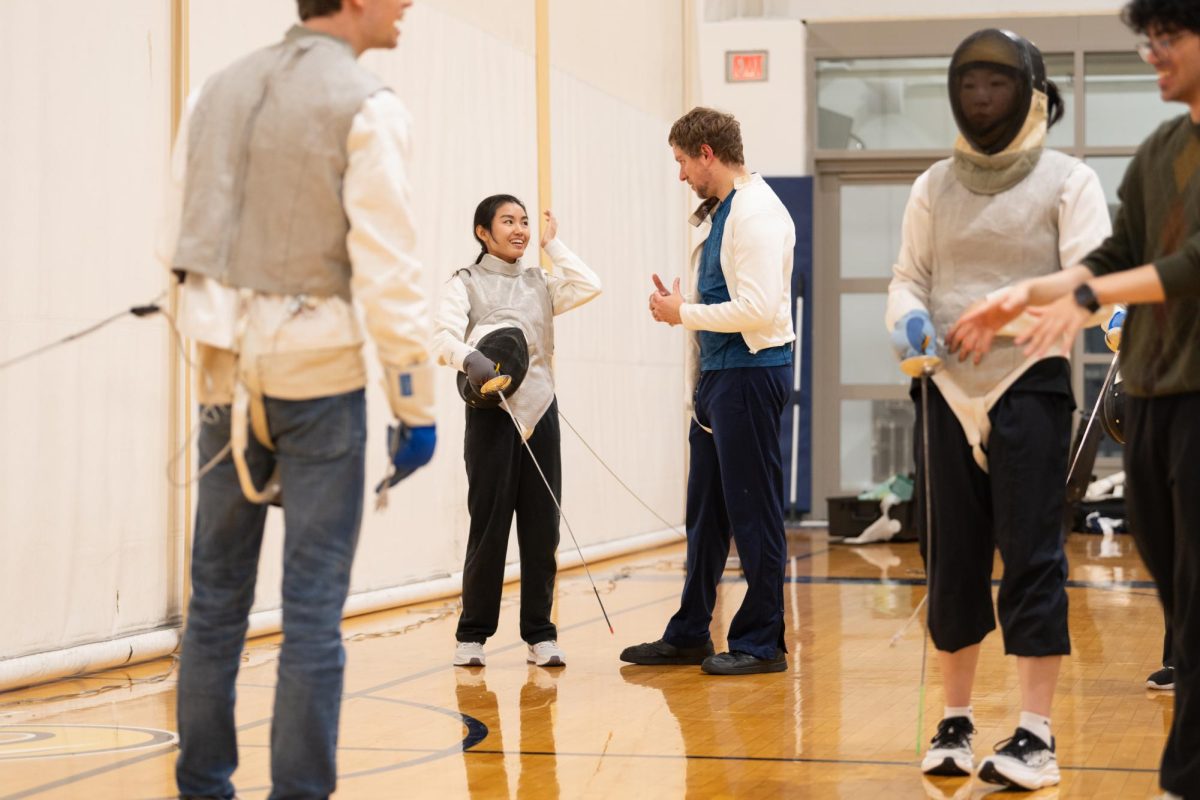
Higgison said he focuses on referee techniques and mainly trains with a saber, while Klatzman helps students work on their form to avoid injuries and continues to practice épée fencing.
“We don’t run things,” Higgison said. “We want the students to run things, but they’re only here at most four years, and when they’re gone, some of that knowledge gets passed on but having us there for the entire span of it definitely helps.”
Years later, blades and fencing gear now scatter the floor at fencing practices in Lerner as Klatzman and Higgison, along with three assistant coaches, explain techniques and watch as students thrust their blades into the air, mimicking coaches’ instructions.
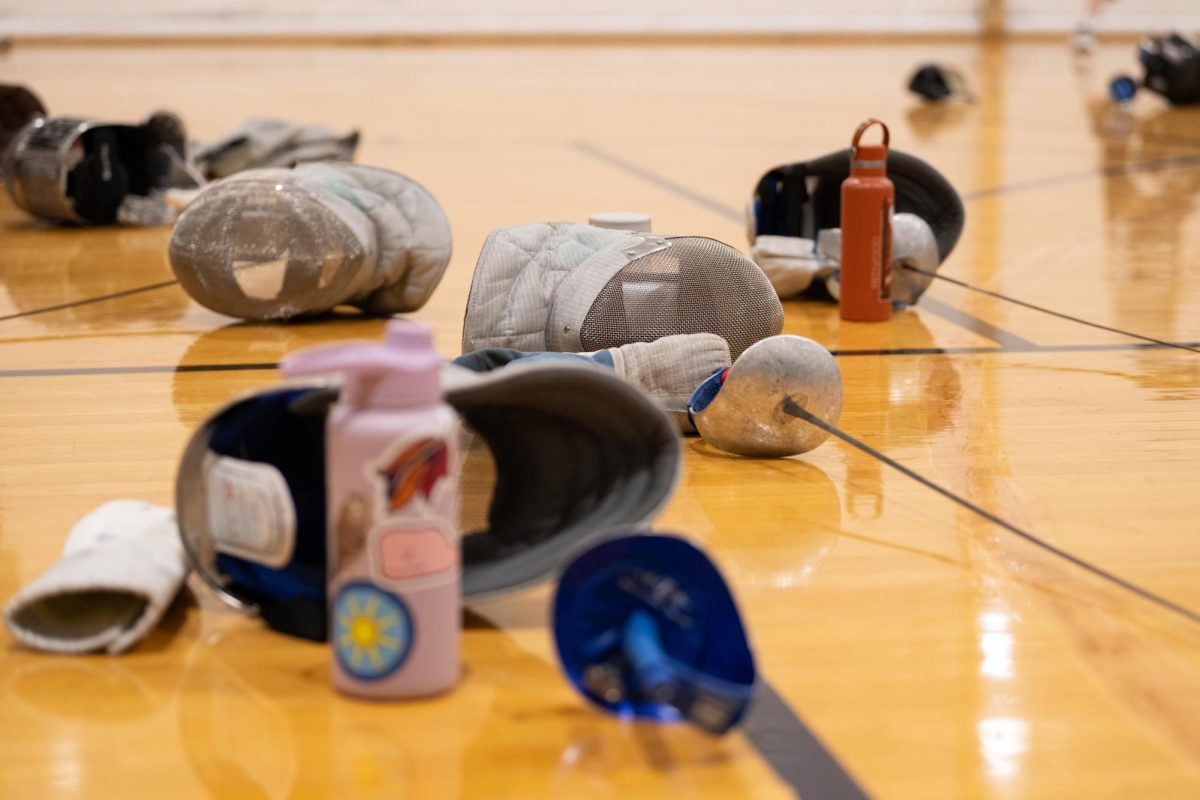
Klatzman said all three of the assistant coaches are also GW alumni. Assistant Coach Dan Howlett, who graduated from GW in 2017, said the fencing club is like a family, with Klatzman and Higgison as the team’s “parents.”
“Jo and Hunter have become kind of my adopted parents,” Howlett said. “I go to their house for Thanksgiving. I dog-sit for them all the time.”
Howlett said Klatzman and Higgison felt more like older siblings when he started as a fencer at GW in 2013, but they evolved into more of a parental role after they let him stay at their home as he searched for an apartment.
“They’ve helped me out a lot,” Howlett said. “Like the apartment I’m in now, Jo found that for me. Because I was in an apartment that had a roach infestation, she said, ‘Dan, come stay in our guest room. We’re gonna find you a place to live.’ And she started looking up apartments for me.”
Assistant Coach Sarah Poncet, a 2023 alum, said she also sees Klatzman like a maternal figure because the players go to her for help if they are injured or sick.
“I could go to Jo for anything,” she said. “She’s great with cramps or if you’re feeling sick. Pretty much like a mom.”
Senior Angela Lewis, the president of the fencing club, said all the coaches play near-familial roles on the team. She said Klatzman and Higgison regularly host dinners for the fencers.
“They’re like our parents,” she said.
